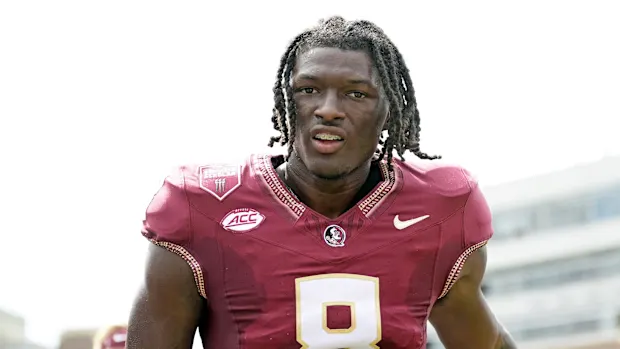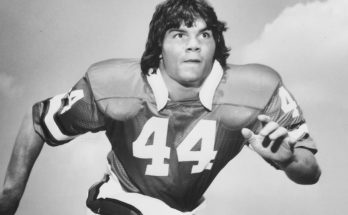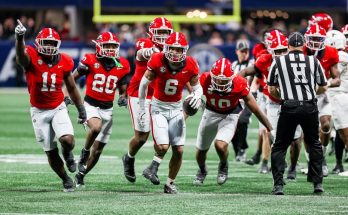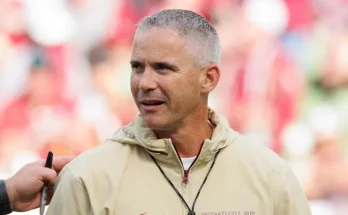Deion Sanders’ Coaching Staff Compared To Florida State By Transfer Receiver
When wide receiver Jaylin Lucas transferred and started speaking about his experience with Deion Sanders’ coaching staff at Colorado, the football world paid attention—not just because of who said it, but because of what it meant. Lucas, a talented and respected player who had been part of a top-tier program like Florida State, offered a pointed comparison between the two environments. It wasn’t meant to diminish what Florida State had given him, but it spoke volumes about what he found in Boulder: a coaching staff that, in his own words, is “different.”
Lucas described his new surroundings not in terms of hype, social media followers, or stadium size, but in terms of development. He emphasized that what he was experiencing under Sanders and his staff was something beyond typical—he pointed directly to their personal success at the highest level of the game. At Colorado, he said, he’s surrounded by men who have lived the journey he wants to take. It’s not theoretical or aspirational—it’s lived experience.
The coaching staff assembled by Deion Sanders is unlike any other in college football. It’s not just experienced, it’s legendary. With three Hall of Famers holding positions—Sanders himself, along with Warren Sapp and Marshall Faulk—the credibility in the room is unparalleled. These aren’t just great football minds; they are gold jacket-wearing icons. These are individuals who played the game at the very highest level, won the highest honors, and returned not to relax in retirement but to pass on their knowledge to young players trying to carve out their own path.
Lucas’ comments highlight the gravity of that dynamic. He noted that being surrounded by greatness forces him to elevate his game. It’s a different type of mentorship. When you walk into a meeting room and the man speaking to you has his name in the Pro Football Hall of Fame, the weight of his words changes. It demands respect, not because of ego, but because of earned wisdom. That’s what Lucas was getting at. At Florida State, he received quality coaching and was part of a successful program. But at Colorado, he found a staff that could speak to his dreams with the authority of those who’ve actually lived them.
That difference may not always be visible in a game film breakdown or a stat line, but for players—especially those with pro ambitions—it’s deeply personal. Development at this level isn’t just about playbooks or conditioning. It’s about understanding how to grow as a professional before becoming one. That’s what Sanders and his staff are offering, and that’s what Lucas recognized immediately.
His statement about development struck a chord across the college football community because it surfaced a truth that many players feel but don’t always articulate. Coaching, at its core, is about trust and belief. Lucas’s words weren’t just praise; they were a declaration that he believes in what’s being built at Colorado. He trusts the men in charge. And he believes that their experiences—as champions, as professionals, as elite players—will help unlock the next level of his game.
Deion Sanders has always carried a gravitational pull. His charisma, his track record, and his unapologetic leadership have brought national attention to a Colorado program that, not long ago, sat on the outskirts of relevancy. But what he’s doing isn’t simply showmanship. He’s carefully curating a culture built on experience, mentorship, and accountability. The presence of people like Faulk and Sapp isn’t symbolic—it’s tactical. These are men who understand what it takes to succeed, who have navigated the highs and lows of a football life, and who now serve as living, breathing blueprints for the next generation.
The structure Sanders is creating is deeply intentional. It’s a layered system of mentorship that prioritizes real-world football wisdom. When a player makes a mistake, he’s corrected not by theory, but by someone who made the same mistake at the highest level and learned from it. When a player struggles with pressure, he’s guided by men who’ve handled Super Bowl expectations, media scrutiny, and million-dollar decisions. That’s development that transcends playbooks.
Lucas’s praise also speaks to the shifting values in the transfer portal era. Today’s players are increasingly aware of their personal brand, their trajectory, and what each decision means for their long-term goals. When a player like Lucas transfers, he isn’t just seeking playing time. He’s seeking fit, mentorship, and a place where he can grow both as an athlete and a person. His decision to join Colorado and then publicly share how different the coaching feels there suggests that players are valuing lived experience in their mentors more than ever.
That doesn’t mean programs like Florida State aren’t elite. They remain among the sport’s top contenders and have built impressive rosters with strong coaching staffs. But the comparison draws attention to something unique happening at Colorado. In a landscape where most programs rely on rising coaches, career assistants, or talented coordinators, Colorado offers something else—direct mentorship from legends. That’s not common. It’s rare. And for a young player, it can be life-changing.
What Lucas shared wasn’t boastful or brash. It was honest. He recognized a different energy in the building, a different level of seriousness in the teaching. And it’s not hard to understand why. When your coaches have worn gold jackets, there’s no place to hide from greatness. The standards are higher. The expectations are clear. And the belief in what’s possible expands exponentially.
Sanders understands this better than most. As a player, he succeeded not just because of talent, but because he soaked up knowledge from greats who came before him. Now, he’s creating that environment for others. He doesn’t just want to win games—he wants to send young men into life prepared, capable, and empowered. That’s the difference Lucas is responding to. That’s the gravity pulling top-tier athletes toward Boulder.
It’s also worth noting the courage it takes for a player like Lucas to speak candidly about his journey. Transferring is never easy. It often comes with criticism, doubts, and second-guessing. But Lucas hasn’t looked back. His words reflect confidence in the path he’s chosen. They also signal to other players that Colorado isn’t just a place to play—it’s a place to grow.
As the season unfolds, the spotlight on Colorado will only intensify. Critics will question the hype, and fans will measure success in wins. But players like Lucas are already winning in ways that go beyond the scoreboard. They’re finding coaching that challenges them, mentors who elevate them, and an environment that demands the best version of themselves. That’s not a press release. That’s the real work of building a program.
In the years to come, the success of Sanders’s approach will be measured not just in championships, but in the lives and careers he helps shape. Players like Lucas are early proof that something powerful is happening in Colorado. They see it. They feel it. And now, they’re speaking it into existence.
What started as a single quote comparing two programs has turned into something deeper: a window into how coaching matters, how leadership shapes futures, and how greatness begets greatness. Jaylin Lucas didn’t just transfer to another team. He walked into a room full of legends—and it’s already changing everything.



